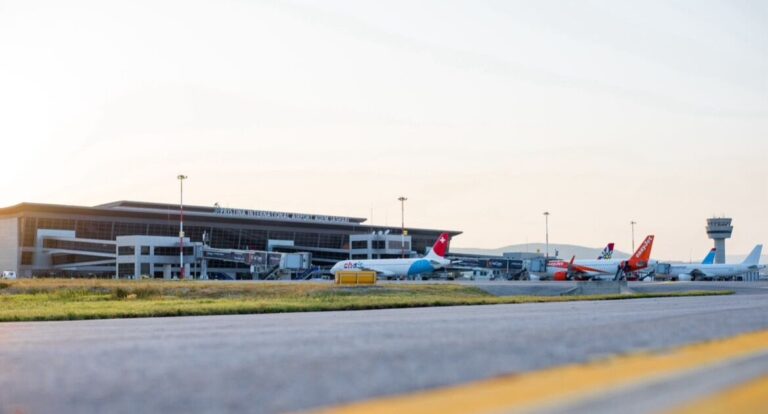Commercial airports in the former Yugoslavia handled just over 36 million passengers in 2024, adding 3.4 million additional travellers on the year before. Nine airports managed to register their busiest year on record – Belgrade, Zagreb, Pristina, Split, Skopje, Dubrovnik, Sarajevo, Podgorica and Zadar. On the other hand, eleven were below their pre-pandemic figures from 2019 including Ljubljana, Tivat, Pula, Niš, Ohrid, Tuzla, Rijeka, Osijek, Portorož, Brač and Maribor. During 2024, Pristina became the former Yugoslavia’s fastest growing airport, adding 657.598 passengers, while Tuzla Airport shed the most travellers, 374.894, enduring its first full year since Wizz Air’s base closure.
During 2024, Dubrovnik overtook Skopje to become the region’s fifth busiest airport, Sarajevo pipped Podgorica, while Zadar surpassed the traditionally busier Ljubljana. Croatia maintained its position as the largest aviation market, with its airports handling over thirteen million passengers. Furthermore, the Croatian market added the most travellers year-on-year, with over 1.8 million extra passengers when compared to 2023. A number of smaller airports struggled last year, hit primarily by capacity cuts by low cost carriers.
Air Serbia became the largest airline in the former Yugoslavia based on the amount of offered capacity, outpacing 2023’s top performer Wizz Air, which shed the most seats. The budget carrier has been hit by manufacturing issues affecting some Pratt & Whitney engines, resulting in the grounding of a number of aircraft. It wiped out over 1.2 million seats off markets in the former Yugoslavia. On the other hand, Ryanair gained over 1.5 million seats, becoming the fastest growing in the region and almost overtaking its competitor Wizz. In 2023, the difference between Wizz Air’s and Ryanair’s capacity levels were over two million seats in favour of the former. Elsewhere, Pegasus Airlines ranked within the top ten for the first time, overtaking Eurowings.
Largest airlines by scheduled seat capacity in the former Yugoslavia, 2024







